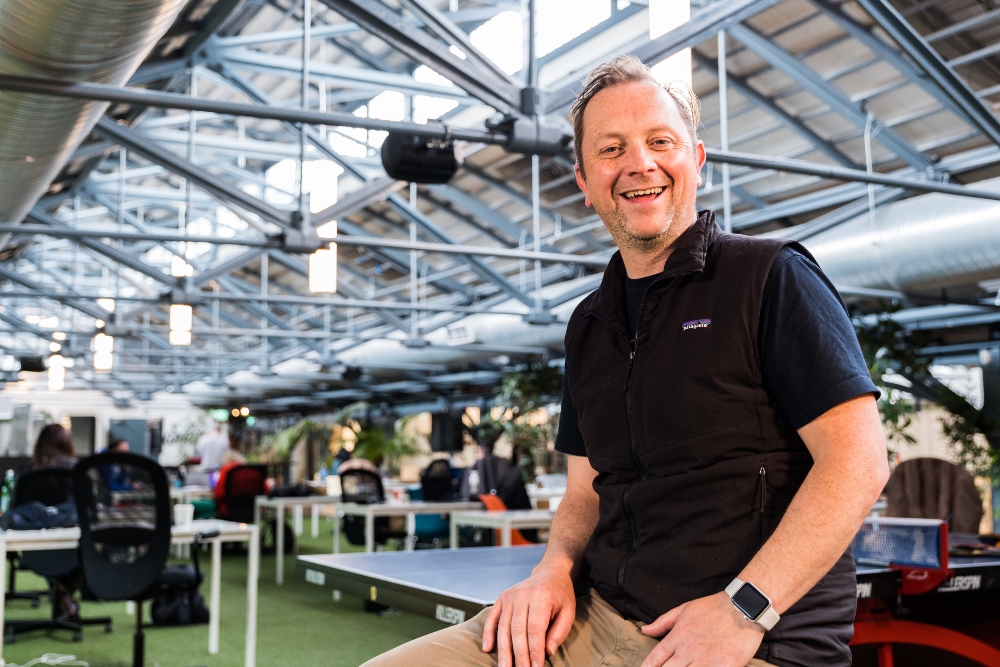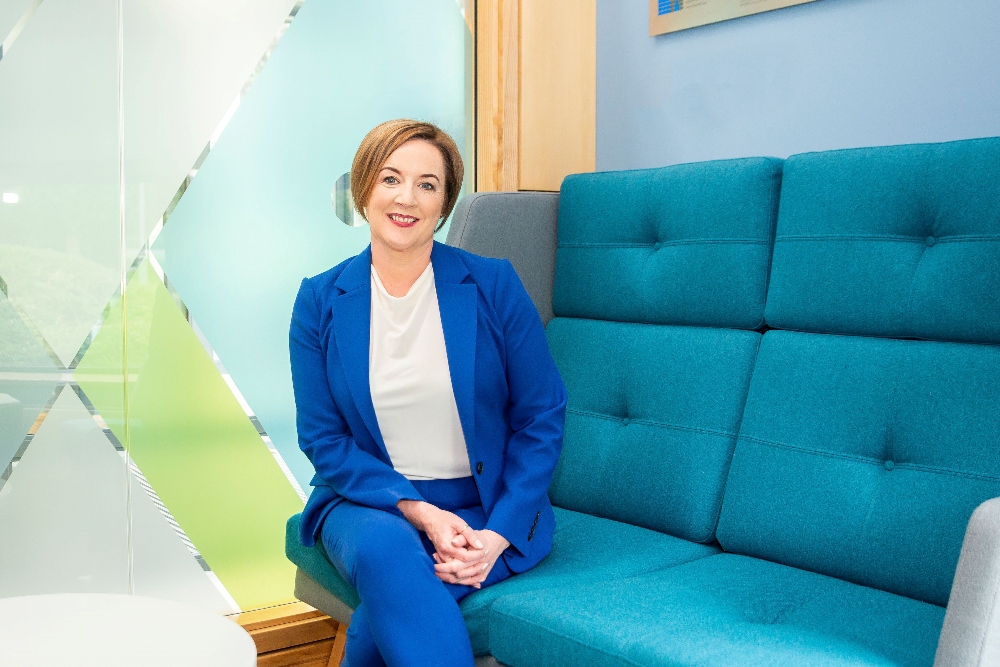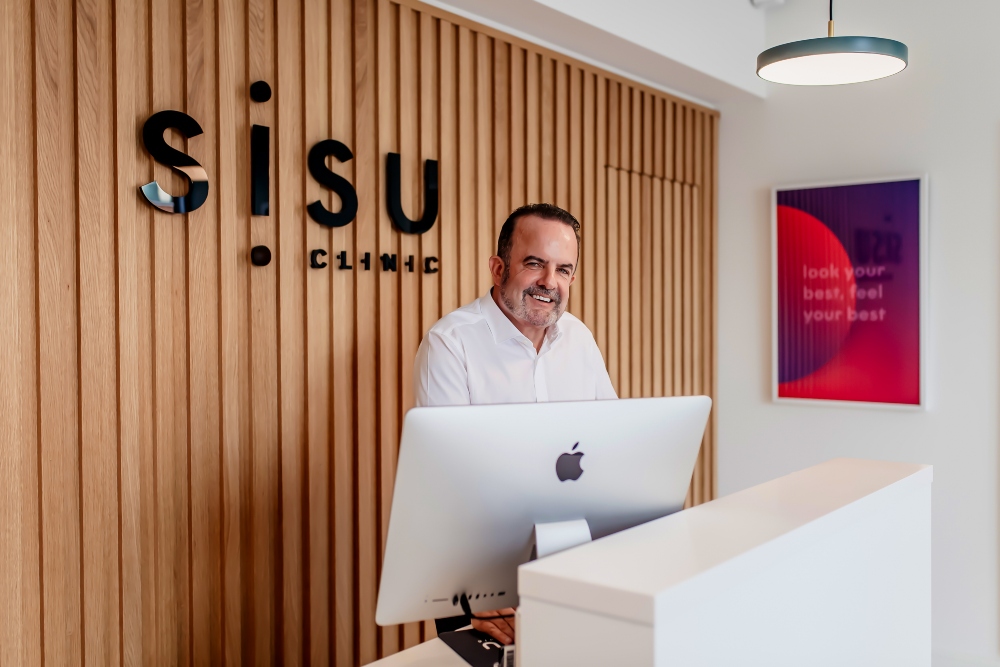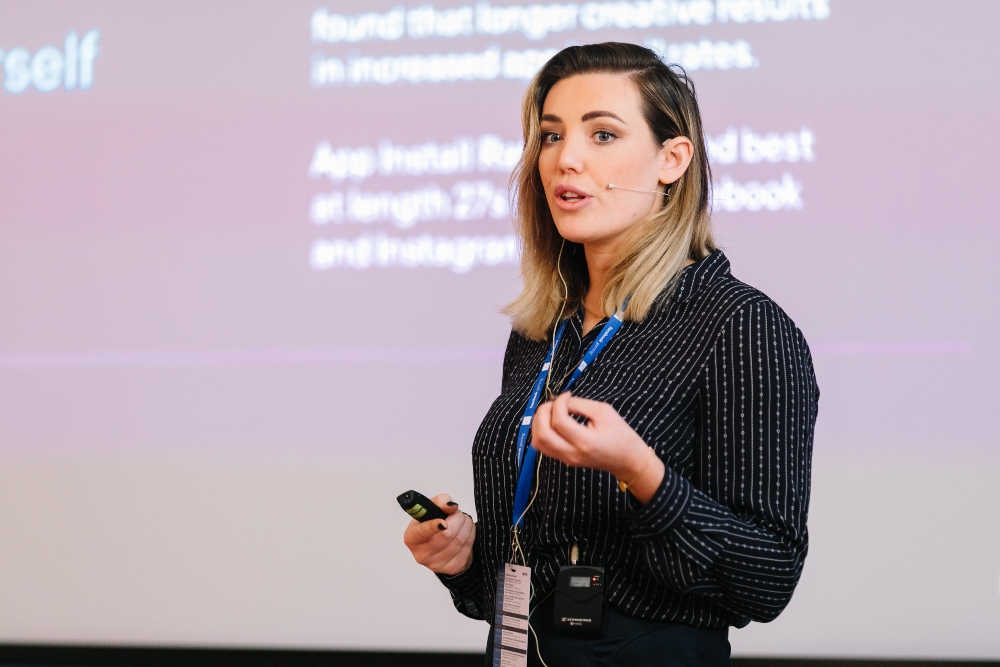Paul Phelan, CEO of Data Edge, shares his life and business lessons.
Paul Phelan has spent the majority of his career with Data Edge, a leading Irish network and application performance management company and winner of Calnex Global Partner of the Year 2022 Award.
He originally joined the company as a development engineer in 1994, and later took the position of CEO following an internal management buyout in 2019.
“I admire the unreasonable ambition of Elon Musk and the reasoned ambition of Richard Branson”
What is your background, what journey did you take to arrive at where you are?
I’ve spent most of my professional career with Data Edge! Having graduated from Kevin St. with a BSc. (Eng) I joined an on-site campus company called ‘NARC’ (National Avionics Research Centre). The role related to automated control of instrumentation, testing ‘black box’ navigation avionics for ‘Team Aerlingus’ and Aerospatial. NARC’s main instrumentation supplier was Data Edge and they hired me as a development engineer in 1994, 28 years later I’m still here and I’m CEO.
Before becoming CEO following an internal management buyout in 2019, I was a director, partner and CTO.
“We are growing our share in our chosen sectors and are on track to reach our 20% year on year growth expectations”
Today my role as CEO still has a strong technical focus which I enjoy, but increasingly I share much of the technical and project management responsibility with our growing team of excellent young engineers and project managers.
As it comes with the territory, I’m now focused more on strategic business activities such as developing partnerships with some of the most innovative companies in our sector and solidifying Data Edge as a leader in timing and synchronisation, nationally and globally.
Why are you doing what you are doing? What need are you meeting? What’s your USP?
We’re at the forefront of next-generation network management systems and we deliver tailored network management services to telecom companies, enterprises and government bodies.
We’re experts in timing and synchronisation which are essential elements for the roll-out and consistent performance of modern telecommunications.
In terms of our USP, we synchronise and optimise network infrastructures for telcos, mobile operators, data centres and large enterprise organisations. Ultimately, we help our clients improve their ‘end user experience’ for their customers.
“This was a turning point for me as it gave me a sense of ownership, a long-term career goal to rise through the ranks”
Our services also help our customers to be more sustainable. Take Data Centres for example, as seen in the news in recent years Data Centres are very much under the microscope, and we help to reduce the environmental impact of data centres. Better management and visibility of power consumption can extend the lifespan of data centres while also reducing their carbon footprint. They have a responsibility to maintain compliance too, with stringent regulations and service level agreements, and our monitoring service helps them with this.
How did you fund and start the business and what are your growth plans?
I first joined Data Edge as a development engineer in 1994. In 2004 I was offered a sales job by one of Data Edge’s suppliers, essentially to become a sales engineer in Ireland and UK (actually competitive to Data Edge’s business!).
This threatened move to leave led the then Data Edge management team to offer me a percentage of the company and directorship if I was to stay on! This was a turning point for me as it gave me a sense of ownership, a long-term career goal to rise through the ranks in Data Edge and influence a growing high-tech company’s direction.
“Position yourself in your team/business to be indispensable”
I became CTO in 2007 and ‘bought out’ one of the joint founders (a definite re-mortgage situation). In 2019 I had the opportunity to completely buy out the remaining shareholder who was retiring (co. founder Brian McBride) and did so thankfully using mostly accrued company funds.
Regarding company direction and growth expectations, we are growing our share in our chosen sectors and are on track to reach our 20% year on year growth expectations.
What are your key skills and qualities that set you apart?
I have a great interest in the engineering world spanning from the mechanical restoration of old cars to the complex electronics telecom standards. I love the engineering elements and figuring it all out, then putting it back to together and seeing the end result.
What (or whom) has helped you most along the way? Who was your greatest mentor/inspiration?
In terms of mentors, I would have to say Dr Jonathan Fisher of DIT. Sadly, he passed away in January 2021. He was a fantastic lecturer and advised me to go for a general electronics engineering degree as a starting point (and not the specialised mechanical engineering ‘Ship design’ course in Southampton that I was then favouring).
What was the greatest piece of business advice you ever received?
“Stay focused” – pick an area to specialise in and stick to it.
What circumstances/qualities/events can mark the difference between success or failure in life or business?
Position yourself in your team/business to be indispensable. Expand your skillset to have more skills and qualifications which will make you unique and “unfireable”. Try and base your career around a ‘body of work’ and build on it. Try and see your ‘long game’ and follow it.
Every career has decision points along the way, it’s wise to have a credible Plan A and B to maximise your negotiation power and ensure success.
What was the most challenging aspect of either starting or growing the business?
The IT landscape is always evolving and keeping up with the pace to survive is necessary, which is always a challenging aspect to consider. Data Edge needs to and so far has succeeded in staying ahead of the curve, particularly with our advanced network management portfolio (Broadcom and Blueplanet) and timing and synchronisation offerings (Microchip and Calnex). That has naturally helped with our growth journey, as well as our diverse client base – ranging from telcos, enterprises, government agencies and so on.
“No business has a need for cheques and cash anymore, so considering this, Irish firms are using those digital technologies sufficiently and safely”
Our recent biggest challenge has been to convince customers that power and environmental monitoring and management are both a necessity and less complex than might seem. We’ve found that customers find the thought of managing and monitoring their power systems overwhelming but they convert when they see the results!
How did you navigate your business through the pandemic and what lessons did you learn?
We were one of the fortunate ones during the pandemic. It didn’t have a massive effect on our operations mostly because our systems were already set up for remote working. We were also fortunate in the sense that network optimisation was pivotal to most organisations’ success.
Many of our operator customers aggressively increased their networks ‘back haul’ bandwidth during these times and were aided by the capacity planning reports delivered from the Broadcom DXNetOPs systems we had supplied. I learned that we’re a resilient team in a resilient sector.
How has digital transformation been a factor in your scaling journey and do you believe Irish firms are utilising digital technologies sufficiently?
Networks have evolved and remote working is now a real option for most businesses.
Digital transactions and currencies are now pervasive, more flexible and more secure. No business has a need for cheques and cash anymore, so considering this, Irish firms are using those digital technologies sufficiently and safely.
If you were to do it all over again, what would you do differently?
It was all a good experience so I wouldn’t do anything differently – scrapes on knees and broken bones included.
Who inspires you in business today?
I admire the unreasonable ambition of Elon Musk and the reasoned ambition of Richard Branson.
What advice/guidance do you give new hires and how do you nurture talent in your organisation?
Supporting young employees and letting them grow is crucial, always having experienced people available to support them and review their work.
What business books do you read or would recommend?
In terms of business advice and analysis, I really like The Economist.
What technologies/tools do you use personally to keep you on track?
I couldn’t survive without Microsoft Office, as well as GoldMine CRM and of course my iPhone and MacBook.
What social media platforms do you prefer and why?
Microsoft Teams and Meta’s ‘Workplace’ are really helpful for projects. Then on a more sociable note, LinkedIn is crucial for tracking contacts through their careers and maintaining those relationships.
What are your thoughts on where technology overall is heading and how it will apply to business generally and your business particularly?
A lot of modern technology is focused on increasing network bandwidth (with lower latency), pervasive connectivity and compute power moving closer to the edge of the network or personal device/house/business/car/aircraft.
Our business is focused on monitoring quality and availability of these network and application response aspects so we’re very excited about where technology is heading.
The Metaverse is inevitable and exciting and will require all of the above.
The next phases of network and application evolution will build on this ‘always on’, ‘high bandwidth’, ‘high availability’, ‘low latency’ connection platform, bringing more subtle/immersive/AI-assisted technologies to all.
Probably only our kids can dream of what these application evolutions will ultimately look like.
Finally, if you had advice for your 21-year-old self – knowing what you know now – what would it be?
Deciding on which college course is huge, I had many conversations, letters, meetings, and ultimately, I was encouraged towards a basic engineering degree, with options to specialise afterwards. This was the best advice for me.
Try and see a ‘long game’ career that suits your aptitude and skill set.
Don’t be afraid to talk to mentors, classmates, or heads of Tech college/University departments you are interested in. An experienced friend or family member can be invaluable to bounce your ideas off too. Nothing bad will come from asking questions and having those conversations.






